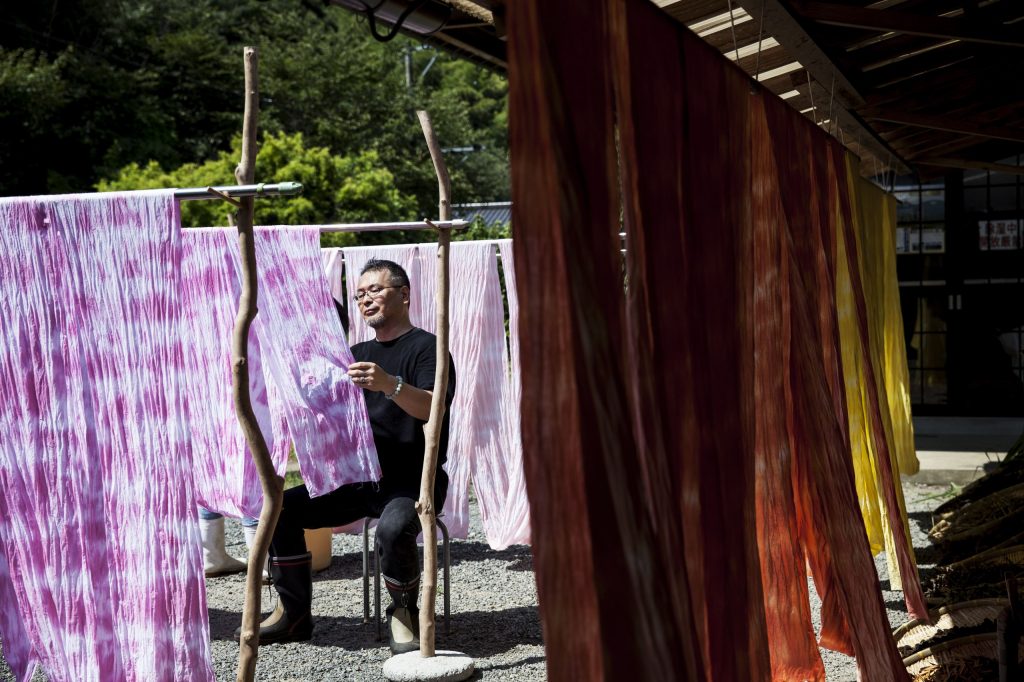At first glance, natural dyeing might seem like just another creative hobby — a charming way to color yarn or fabric with flowers and leaves. But spend some time with the process, and you’ll realize: this craft offers far more than beautiful results. Natural dyeing encourages sustainability, cultivates mindfulness, and nurtures a powerful personal connection to the materials you use and the world around you.
In a fast-paced, throwaway culture, the practice of dyeing with plants invites us to slow down and return to something more meaningful — and more human.
A Sustainable Alternative to Synthetic Color
The textile industry is one of the most polluting industries on Earth, and synthetic dyes are a major contributor. These dyes often rely on petrochemicals, heavy metals, and massive amounts of water. The result? Toxic runoff, environmental degradation, and harm to workers and communities.
Natural dyeing offers a radically different approach. By using plant-based materials, food waste, and even invasive species, natural dyers can create color in ways that are non-toxic, biodegradable, and low-impact. Many dye plants can be grown in home gardens or foraged locally, reducing the need for shipping and packaging. Plus, when the process is done with care, leftover dye baths and plant waste can be safely composted.
Sustainability isn’t just a trend — it’s a responsibility. And with natural dyeing, it’s built into the process from the ground up.
A Return to Slow, Mindful Making
Modern life tends to prioritize speed, efficiency, and perfection. But natural dyeing works on nature’s schedule — and that’s part of its power.
When you dye fabric with plants, you slow down. You spend time gathering materials, preparing fabric, simmering dye baths, and waiting as the color takes hold. You learn patience. You watch closely. You become attuned to tiny changes — in smell, in texture, in hue.
This slow process creates space for mindfulness. It pulls you into the present moment and helps you let go of control. Unlike synthetic dyes, which are designed for consistency, natural dyes are full of surprises. The same leaf might produce a different color depending on the season, the soil, or the water used. There is no perfect recipe — only practice, observation, and trust.
For many, this makes dyeing feel almost meditative. It’s not just about creating something — it’s about becoming part of something larger than yourself.
A Deep Personal Connection
When you create your own colors from the world around you, your relationship with your materials changes. That scarf you dyed with walnut hulls? It’s no longer just an accessory — it’s a memory of an autumn walk. The pink yarn made from avocado pits becomes a reminder of shared meals. The golden fabric from marigolds holds the warmth of your garden.
This connection extends beyond the objects you make. It changes how you see the natural world. Suddenly, you notice what plants are growing nearby. You look at trees differently. You pay attention to the seasons. You become a student of the earth.
Natural dyeing fosters a sense of reverence — for nature, for craft, and for the stories that color can carry.
A Community Rooted in Care
Across the globe, a growing community of natural dyers is forming — artists, hobbyists, farmers, and makers who share knowledge, swap dye plants, and inspire each other. These communities are grounded not in competition, but in generosity. They remind us that sustainability isn’t just environmental — it’s social.
Whether you learn in-person, take an online course, or follow plant dyers on social media, you become part of a movement rooted in care: for the planet, for tradition, and for each other.
Color With Purpose
Natural dyeing isn’t just about achieving the “right” color. It’s about working with the unpredictable, honoring your materials, and creating beauty with intention.
In a world full of instant results and endless waste, plant-based dyeing offers something different: a chance to make slowly, to make meaningfully, and to make things that truly matter.

